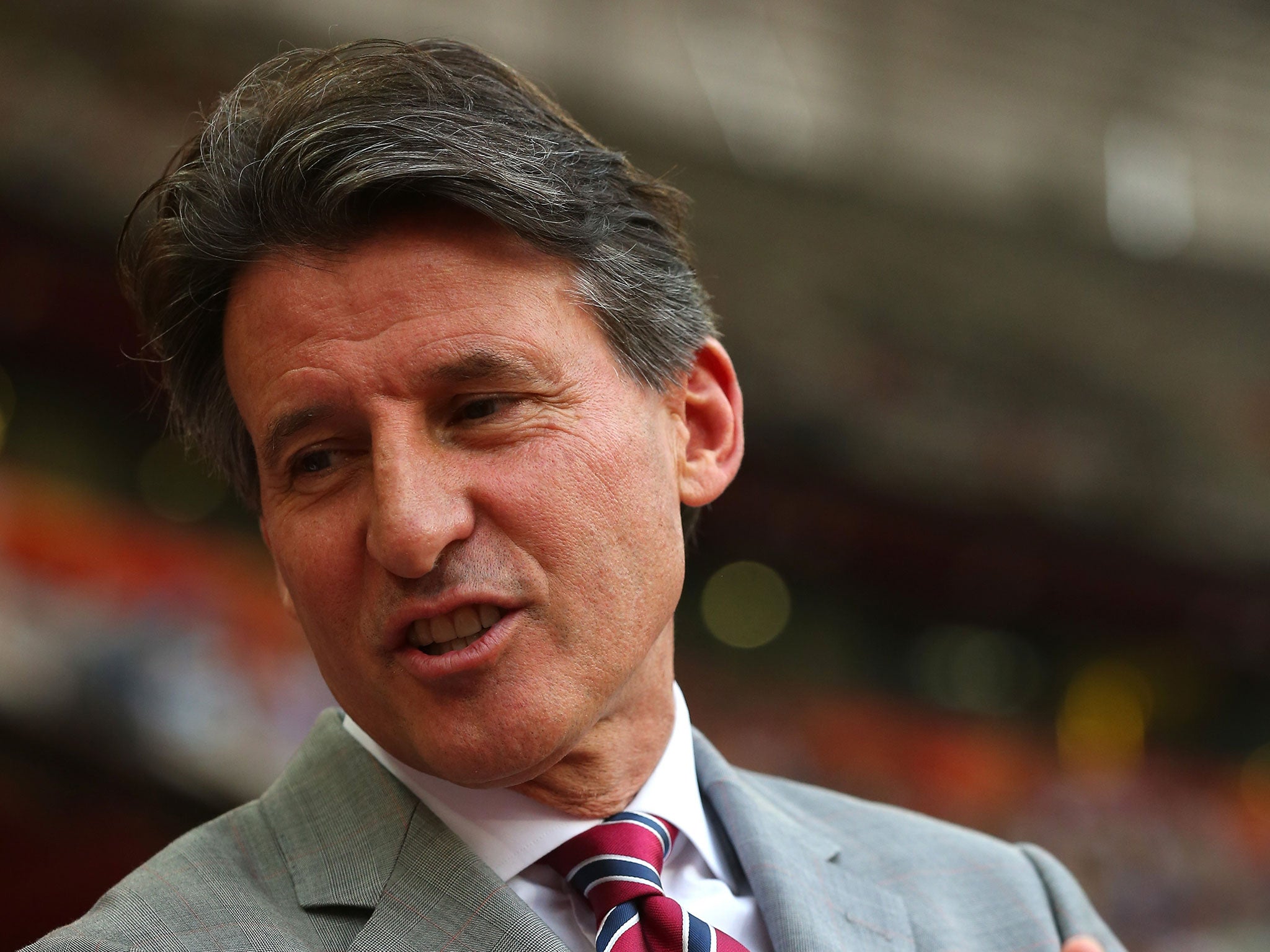Athletics doping and corruption scandals: Time for Sebastian Coe to deal in action, not words
There had been whispers from British athletes and from within the corridors of the IAAF for months

Your support helps us to tell the story
From reproductive rights to climate change to Big Tech, The Independent is on the ground when the story is developing. Whether it's investigating the financials of Elon Musk's pro-Trump PAC or producing our latest documentary, 'The A Word', which shines a light on the American women fighting for reproductive rights, we know how important it is to parse out the facts from the messaging.
At such a critical moment in US history, we need reporters on the ground. Your donation allows us to keep sending journalists to speak to both sides of the story.
The Independent is trusted by Americans across the entire political spectrum. And unlike many other quality news outlets, we choose not to lock Americans out of our reporting and analysis with paywalls. We believe quality journalism should be available to everyone, paid for by those who can afford it.
Your support makes all the difference.It was a sombre Sebastian Coe who finally broke his silence at the weekend to speak of the “dark days” for athletics.
In the Mandarin Oriental Hotel in Geneva, things are set to get darker, with Coe and the International Association of Athletics Federations bracing themselves for yet another barrage of questions, accusations and general disgust at the level of corruption in a sport of which Coe finds himself in control – perhaps loosely, in light of the past week’s events.
The message from Coe and his apparently new-look IAAF is about transparency, the new president saying he told his workforce to be as open as possible when the French prosecutors came calling nearly a week ago.
The sport’s new global chief needs to do the same.
One telling point as he spoke was that this was the first he had heard of the allegations against Lamine Diack, his predecessor and a man who a little more than two months ago he was sycophantically calling his “spiritual leader”, moments before he took over the reins from the Senegalese.
That is possible, but it seems hard to believe that a man who was vice-president of the sport for seven years had not once heard a single accusation of wrongdoing against Diack, its president.
There had been whispers from British athletes and from within the corridors of the IAAF for months that had hinted at bribery at the very heart of the sport, although perhaps not quite as widespread nor to the financial levels that have been alleged in recent days.
As Coe tries to rebuild trust in a sport that repeatedly seems to have hit rock bottom only to sink further still, he needs to be seen to be purer than pure.
The former Tory MP has always had the ability to say what needs to be said – his interview on BBC’s Sportsweek was a case in point – but rhetoric is far from sufficient to counter allegations against what one IAAF member has called “an in-house mafia”.
Coe will be judged on his first 100 days in office and more broadly on how he deals with this entire sorry saga. That century mark is fast approaching with no clear indication yet of what has been done.
He still carries a large swathe of personal goodwill from athletes especially, particularly the British contingent, for his achievements on the track but also with London 2012.
But those athletes and the watching public will turn against him rapidly if he is not seen to take proper action.
Join our commenting forum
Join thought-provoking conversations, follow other Independent readers and see their replies
Comments